--
Watching Wildlife
Personally, the best in wildlife watching comes from viewing animals without interrupting them. Just watching how animals act in the wild. By blending in with the surroundings and observing how things would be if you weren't there increases the experience.The following are wildlife viewing tips that I've found applicable in both desert and mountain environments.
Wear natural colors, stay upwind if possible. Remove glasses that glint and reflect light.
Move slowly, smoothly and steadily - you'll get closer and scare away less animals. Approach animals in a roundabout way, never directly.
Make yourself as small and unassuming as possible. Hide your figure behind boulders or vegetation, and try not to throw a shadow.
Keep your distance. Stay on established trails and maintain a distance that is comfortable for wildlife. Chasing after an animal can endanger its life.
Watch where animals are most likely to show up - drinking sites, trail intersections, perches, ledges and overlooks to open areas. Wildlife often gathers at "edges" between habitat types - for instance, a deer herd may graze at the edge of a meadow near a wooded area that offers cover.
Bring the right tools. To get close-up views, use binoculars, spotting scope or camera zoom lens - a 400 mm lens is best. You will also appreciate a pair of comfortable shoes.
Use materials such as field guides and checklists to identify animal species- and to learn where you are most likely to see them.
Watch at dawn and dusk, most wildlife species are active at these times.
Resist the temptation to "save" baby animals - mom is usually watching from a safe distance. Don't touch.
Do not feed animals. Let them eat their natural foods. Your handouts could hurt their digestive systems, make them dependent on future handouts - or even kill an animal.
Be patient. Don't expect to see everything right away. Resist the urge to throw rocks to see a flock fly.
Give nests a wide berth. You could frighten the parents away and leave eggs or young animals exposed to predators.
Avert your gaze, as animals may interpret a direct stare as a threat.
Many wildlife-watching lists emphasize birds, for good reason. There is often more information about birds than other wildlife at any given site, because birdwatchers (or "birders") continually record their sightings. Birds are often easier to spot, as they roost in trees or brush and take to the air. And they can often be seen at any time of day, unlike many walking animals that only emerge from cover only at dawn or dusk, or during the night. You may not always see the other wildlife, but you will almost always see birds. So, you may want to come prepared with bird watching tools: a field guide to help you identify them; binoculars, spotting scope or long-lens camera to get a better view; and possibly a checklist to record those you do see.
Look for signs of animals, even if you can't see them. Signs can include tracks, mounds, burrows, droppings and bones. A field guide can help you learn what to look for, and where.
Desert Wildlife
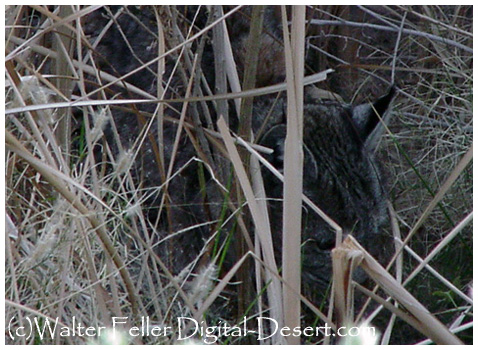
Sometimes animals will blend in very well
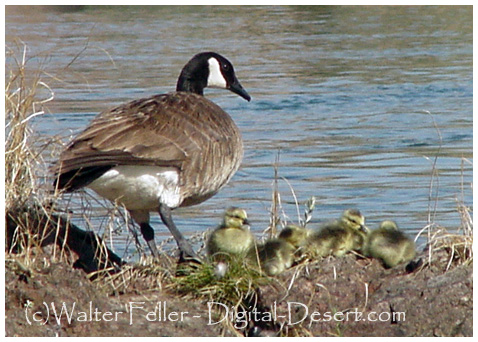
Resist the urge to save baby animals -- the parents may be just out of your sight
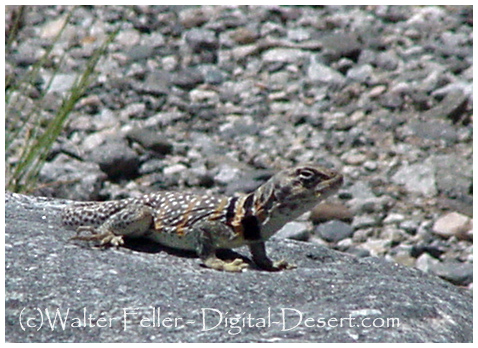
Look for lizards sunning themselves
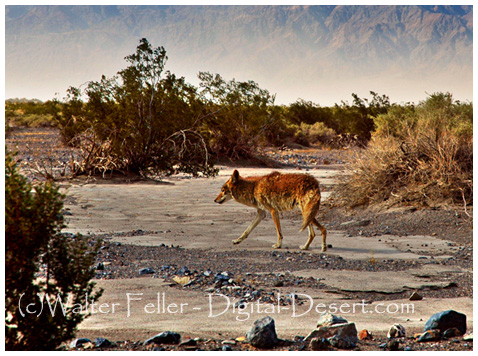
Don't feed the animals -- thier life depends on it
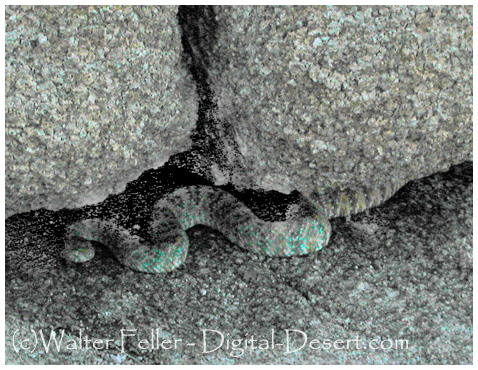
Watch your step!